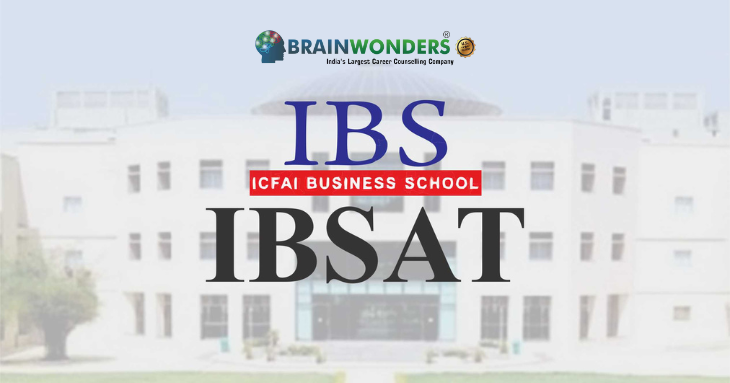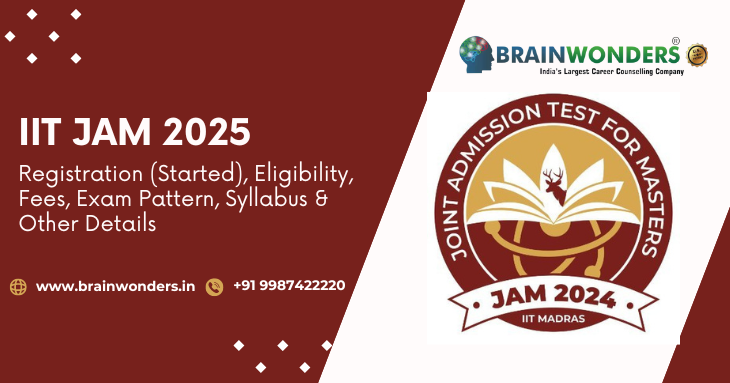

Take Brainwonders Career Test and make the right decisions for your college and course ahead
Let your unique personality, strengths, and traits guide to make the best decdision of your life!
Blog
17 February,2024 | By Brainwonders

Courses after 12th, students can pursue radiology courses. Radiology, a branch of paramedical science, focuses on conducting technical investigations to diagnose patients' conditions and provide appropriate recommendations. These courses encompass various technical subjects such as X-rays, Sonography, Ultrasound, Computed Tomography (CT), Magnetic Resonance Imaging (MRI), Positron Emission Tomography (PET), and CT scans.
Radiology offers courses encompassing medicine, diagnostics, and treatment, available to students who have completed the 12th grade. Two options for Radiology courses after 12th grade are the BSc in Radiology and the Diploma in Medical Lab Technology.
Students can take a Radiology course after 12th to pursue a career in radiology. Candidates can initiate their journey towards becoming radiologists by undertaking programs such as BSc Radiology, Certificate in Radiology, or BSc Radiology & Imaging Technology.
With its advanced imaging technology, radiology plays a pivotal role in unravelling the underlying causes of illnesses and guiding healthcare professionals in devising appropriate treatment strategies. It comprises two subspecialties: interventional radiology and diagnostic radiology. Radiologists are medical professionals who specialize in this field. Diagnostic radiology enables doctors to visualize the inside of the body by analyzing images.
Interventional radiologists employ imaging technologies like fluoroscopy, MRI, ultrasound, and CT scans to assist with therapeutic procedures. These techniques involve using small tools and instruments, such as wires and catheters inserted into the body. Rather than relying on invasive procedures or surgery, these approaches enable physicians to detect and treat various conditions in almost any body part.
Admission to Radiology Courses After 12th is now open at renowned institutions. Those students who are interested in Radiology. They can directly apply by filling out the application form, which the respective institutes or colleges provide. Eligibility requires a minimum score of 45% in the 12th class. Selection will be based on previous qualifying scores.
To be eligible for admission to Radiology Courses After the 12th, students must have passed their 12th class with a minimum score of 45%. The institute will select candidates for admission based on comparing the applicants' previous qualifying scores.
Get the Best Counselling Support in India With a Click
Important Role in Diagnosis and Treatment: Radiology is important in diagnosing the disease and treatment. Radiology usually uses imaging techniques to detect diseases like X-rays, MRI, CT scans, and Ultrasounds.
Advanced Technology: Radiology is an advanced Medical technology. Studying radiology gives you knowledge about different imaging techniques and the use of the equipment, which is rewarding for your career and professionally.
Job Stability and Demand: The demand for radiologists keeps increasing daily. The continuous cases of different diseases increase the usage of Imaging techniques. The demand for Radiologists also depends on the stability and potential of the job.
Flexibility in Job: The Radiologist can work in hospitals, Clinics, Research Institutions, and academic medical centres. This allows you to choose an environment according to your presence and goals.
Global Scope: The Radiologist course provides valuable and useful skills. This skill is needed globally, so completing this course offers a chance to work in different countries and healthcare systems.
Radiology offers many courses, attracting UG, Diploma, and Certificate students. These courses hold significant demand in the field of certificates and diplomas. Taking Radiology Courses opens the door to a lot of exciting job opportunities. People can work in these fields as radiologists, radiographers, ultrasound technicians, MRI technicians, CT scan technologists, radiology nurses, radiology assistants, etc. This gives people a lot of satisfying career options to choose from. Students can explore a vast scope within the field of radiology.
Career Confusion? DMIT has the answers!
| Course Name | Duration |
| BSc Radiology | 3 Years |
| BSc Radio Therapy | 3 Years |
| BSc Radiology & Imaging Technology | 3 Years |
| Diploma in Radiography | 2 Years |
| Diploma in X-Ray Technology | 2 Years |
| Diploma in Medical Lab Technology | 2 Years |
| Diploma in Medical Radiography Technology | 2 Years |
| Diploma in Radio-Diagnosis | 1 Year |
| Certificate in Radiology | 6 months |
| Certificate in radiology assistant | 6 months |
| Certificate in radiography | 6 months |
| Certificate in radiography diagnostic | 6 months |
This paramedical course focuses on using radioactive integrated instruments to detect diseases. It is a full-time bachelor-level program that does not require NEET UG qualification for admission. Students can find many jobs in public and private hospitals and research centres.
This three-year Bachelor's course covers theoretical and practical aspects of Radiology & Imaging Technology. All the Students who want to pursue a career in Radiology must pass exams in all six semesters and complete an internship as part of their degree program.
Commonly referred to as BMRT, this full-time paramedical course can be completed in three years. It provides students with practical skills and knowledge related to medical equipment used in radiotherapy.
This two-year diploma course in radio diagnosis offers specialization in various aspects of radiology, such as MRI, X-ray, and CT scans, including GI radiology, vascular radiology, and neuroradiology. Eligibility criteria should be checked on the institute's websites.
X-Ray technology is widely used in the healthcare industry for detecting bone fractures and other conditions. Those who take that two-year college learn the skills required to get jobs as X-ray, assistant, radiography, and radiography imaging technicians.
Salary packages can range from Rs. 2.2 L - 6.5 L per annum.
The MRI technician plays a vital role in maintaining accurate records, operating the scanner, and capturing images. This course focuses on achieving several objectives, including understanding the fundamental principles and functioning of magnetic resonance imaging. Eligibility criteria for the MRI Technician course after the 12th require a minimum of 50% marks in the 10+2 level or its equivalent from a recognized board, with subjects such as Physics, Chemistry, Biology, and Mathematics.
12th class in Biology, Chemistry, or Physics as well as Mathematics.
Different colleges have different minimum grades, but usually they are 50 percent or above.
A master's degree in a related field would be appropriate. radiology, BPT, etc.).
Cut-off marks particular to the university or college.
Entrance exams such as JNU EE, AIIMS, and DU Entrance Exams are required for admission to UG radiology courses. Additionally, candidates should fulfil merit-based criteria and qualify for the entrance exam. Students who have completed their 10+2 education can apply for UG radiology courses.
To become a radiologist after the 12th in India, one must pursue a radiology course. There are various affordable programs available in this field. Successful completion of the course with good grades leads to becoming a radiologist. To become a successful radiologist after the 12th, one should pursue an MD after MBBS with a minimum grade of 55%.
The field of radiography offers extensive career and job opportunities. The technology of radiology has changed in the past years; the field of radiography has also increased. Because technology has changed in the past few years, the field of radiography has grown. This means that there are now more jobs and possibilities for radiographers.
Radiologist
Radiology Technician / Radiographer
MRI Technologist
CT Scan Technologist
X-Ray Technician
Ultrasound Technician
Medical Imaging Specialist
Radiation Safety Officer
Medical Equipment Sales/Service Specialist
Teaching (in medical colleges or training institutes)
Advanced Career Paths (After Further Studies or Specialization):
Diagnostic Radiologist
Interventional Radiologist
Nuclear Medicine Specialist
Pediatric Radiologist
Oncology Radiologist
Forensic Radiologist
For a radiographer: ₹3.5 to ₹6 lakh a year.
MRI technologists: ₹4 to ₹8 lakh annually.
Radiologist: ₹1 crore or more each year, especially as they gain more experience or specialize in a specific area.
In private hospitals or clinics, radiologists and technologists can often make even more money once they've built up their skills.
Q1: Is NEET required to become a Radiologist?
Ans: No, NEET is not required to become a Radiologist. Admission to various universities is based on merit list criteria and the university's entrance exam.
Q2: What are the qualifications for a career in Radiology?
Ans: To be eligible for admission to Radiology courses, students should have a passing certificate from a recognized board for their 12th class.
Q3: How long does it take to get a degree in Radiology?
Ans: The radiology degree takes at least three years at the college level.
Q4: How can one become a Radiologist after completing the 12th grade?
Ans: Interested candidates can pursue a BSc in Medical Lab Technology after the 12th grade and gain experience as Radiologists in government or private medical labs. Another option is to pursue a 2-year diploma course in Radiology.
Q5: Is the Radiology course after the 12th suitable for girls?
Ans: The Radiology course after the 12th is a favourable option for girls. After completing the 12th grade, girls can apply for admission to various specializations in Radiology.
Q6: What are the age criteria for the Radiology course?
Ans: The minimum age criteria for the Radiology course is 18 years, and the maximum age is typically 23 years.
Q7: What is the MD radiology salary in India?
Ans: The salary for an MD in Radiology in India varies based on location, experience, and institution. On average, fresh MDs might start around ₹8-15 lakh per year, while experienced radiologists could earn ₹20 lakh to ₹50 lakh or more annually. Keep in mind that these figures are approximate and can change over time.
Q8: Is it possible to pursue Radiology without completing MBBS?
Ans: Becoming a radiologist typically involves completing an M.B.B.S. degree followed by an M.D. in Radiology. Alternatively, you can pursue B.Sc. degrees in radiography or medical lab technology to work as a technician alongside MD radiologists.
Q9: What is the income range for a Radiologist in India?
Ans: The initial salary for a radiologist typically falls within the range of Rs. 25,000 to Rs. 30,000. With accumulated practice and experience, this figure can increase to Rs. 70,000 to Rs. 80,000.
Q10: Is there an entrance examination for admission to the B.Sc. Radiology/Radiography course?
Ans: To pursue B.Sc. radiology courses after 12th, it is essential to have a background in science. The primary eligibility criterion is a minimum of 50 percent in Physics, Chemistry, and Biology (PCB), along with specific entrance tests mandated by the college. Some institutions also admit students based on merit. Given the scientific nature of radiology, commerce students are not eligible to apply for these courses.
Take Brainwonders Career Test and make the right decisions for your college and course ahead



,_Syllabus,_Pattern,_Old_Question_Papers.png)

